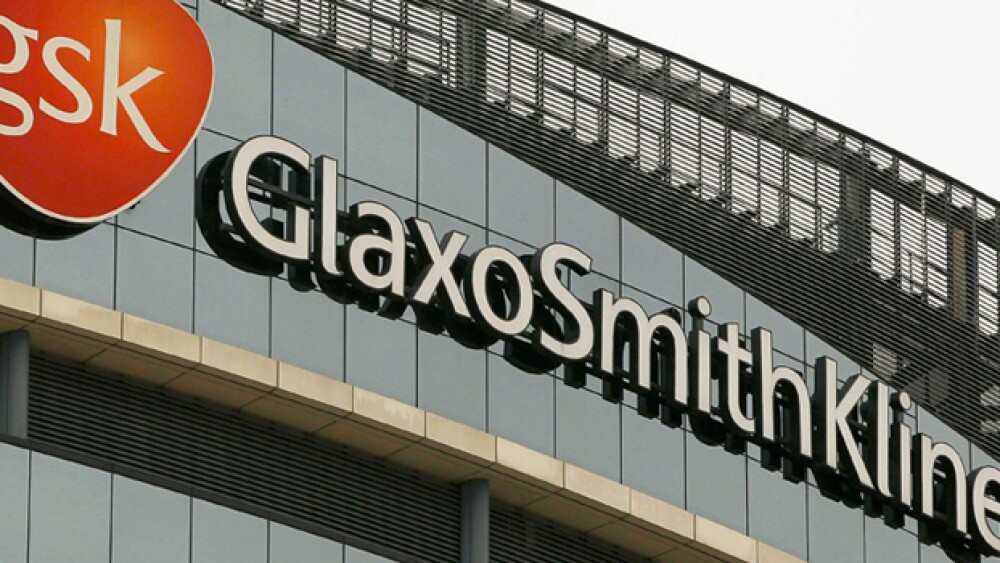A filing with the SEC indicates that Glaxo now has a 13 percent stake in Spero Therapeutics.
A filing with the U.S. Securities and Exchange Commission (SEC) indicates that UK’s GlaxoSmithKline now has a 13 percent stake in Spero Therapeutics. GSK now has 1,854,006 shares in the company.
Spero focuses on developing treatments for bacterial infections. Its lead candidate is SPR994 for treating multi-drug resistant (MDR) Gram-negative bacterial infections. It also is developing SPR720, an oral antibiotic for pulmonary non-tuberculosis mycobacterial infections. The company was founded in 2013.
In addition, it has a platform technology called Potentiator Platform. This technology allows the company to develop combination therapies that can expand the spectrum and potency of existing antibiotics. This includes formerly inactive antibiotics against Gram-negative bacteria. It has two candidates out of this platform, both intravenous drugs, SPR741 and SPR206, designed to treat MDR Gram-negative infections in the hospital setting.
The company went public on Nov. 6, 2017. It offered 5,500,000 shares at a public offering price of $14 per share. Shares are currently trading for $12.51.
Another filing on Nov. 6 indicates that Merck & Co. is also one of the investors, with 935,942 shares. That represents a 6.5 percent stake, which does not give it voting power.
And another filing shows that Biotechnology Value Fund bought 510,846 shares, or 3.7 percent of available shares.
In addition to its investors, Spero had collaborations with non-commercial organizations. These include funding from the U.S. National Institute of Allergy and Infectious Diseases (NIAID), the U.S. Department of Defense (DoD), and Combating Antibiotic Resistant Bacteria Biopharmaceutical Accelerator (CARB-X), a public-private partnership funded by the Biomedical Advanced Research and Development Authority (BARDA) within the U.S. Department of Health and Human Services.
The company’s president and chief executive officer, Ankit Mahadevia was formerly a venture partner at Atlas Venture. Before joining Atlas in 2008, he worked on product and business development at Arcion Therapeutics. He has also held positions in business development at Genentech and at Vanda Pharmaceuticals.
In a March 2016 blog post, Mahadevia wrote, “The problem of multi-drug resistant bacterial infections is ever present, and in particular the challenge of Gram-negative infections continues to pose a serious threat. Thirteen million patients in the G7 countries suffer from Gram-negative infections each year, and virtually all of these patients are hospitalized. Of these infections, 700,000 patients around the world each year die from multi-drug resistant infections. These strains are resistant to multiple (or sometimes all) available therapies, and mortality they cause is a gross underestimate given that many patients with serious chronic diseases such as cancer ultimately die of an infection.”
He goes on to point out that despite an increase in drug-resistant bacteria, few companies have continued research and development in this area, “driven by the limited flow of innovative therapies, a strict regulatory environment, and complexities in creating a global market for antibiotics.”
As a result, there hasn’t been a new novel mechanism for treating Gram-negative infections in more than 30 years. But the U.S. has both public and private initiatives that has led to a push for development in this area. He concludes, “Along with incentives designed to push drugs to market, ‘pull’ incentives will help ensure that new therapies that get to market are launched in a sustainable ecosystem. Prior therapies such as Cubicin and Zosyn, and recent approvals such as Avycaz support the important point that antibiotics that treat unmet need and demonstrate a differentiated antimicrobial spectrum have, and will continue to create value in the market even within the current system.”





